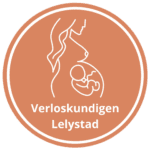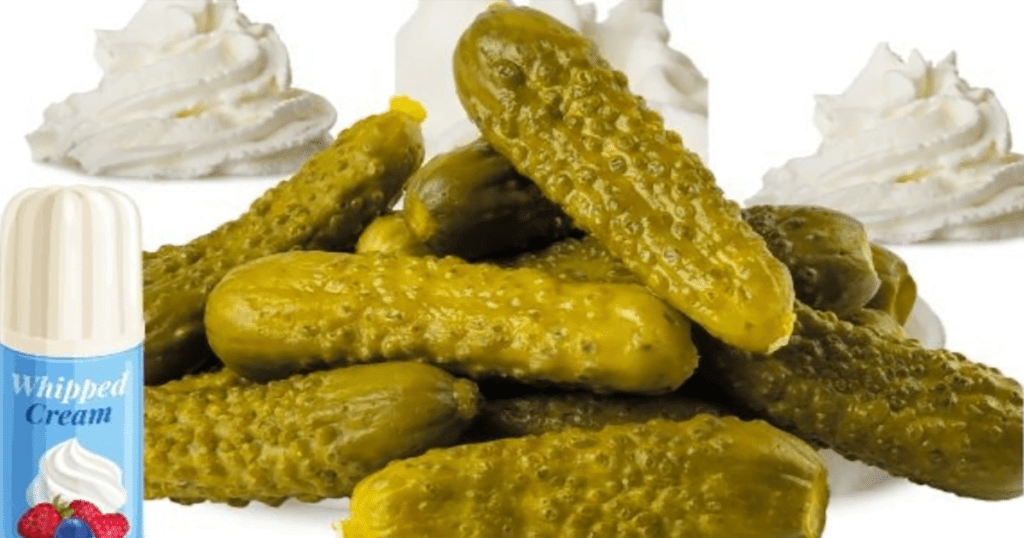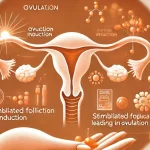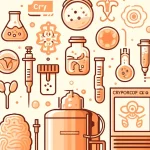Pregnancy is one of the most intense physical transformations you will ever experience. And yes, almost every part of your body changes in some way. But before all this happens – perhaps even before you get a positive pregnancy test – you'll notice that your appetite changes, often quite dramatically.
There will be certain foods you used to love and absolutely loathe when you're pregnant. But there will also be foods you crave, perhaps foods you never liked before.
There may be strange combinations of things that you suddenly crave. Pickles and ice cream may be the most infamous combination, but that's just the tip of the iceberg when it comes to weird pregnancy cravings.
Let's take a deeper dive into pregnancy cravings – why it happens, how common it is, what types of foods pregnant people crave, and when and if pregnancy cravings become something to worry about.
When do pregnancy frenzies start?
All pregnant people are different, but in general the desire for pregnancy begins towards the end of the first trimester, it reaches a peak in the second trimester and decreases at the end of the third trimester.
Why does pregnancy cause food cravings?
There are a few major theories about why pregnancy causes our taste buds to change and why we crave certain foods during this time. Here are a few of the most popular theories.
Hormonal changes
Pregnancy is a time of major hormonal changes, especially during the first trimester. Think of it as PMS times a million. Just like what happens to you when you're pregnant, the hormones of pregnancy can change the types of cravings you experience.
Hormones can influence your sensory experience of food, your sense of smell and your mood, all of which determine what type of food you crave.
Sensory changes
Many pregnant people say they become bloodhounds during pregnancy – they smell things from a mile away and are easily overwhelmed by scents. This can affect the type of food we crave. Foods with strong and pungent odors can be a total turn-off. At the same time, foods with pleasant, fragrant smells can actually be more interesting.
Changing nutritional needs
Pregnant people have an increased need for nutrients such as calcium and iron. That's why you may crave foods rich in these ingredients. The only problem is that your body might sense its need for calcium and make you crave a giant tub of metilla ice cream.
Eat the ice cream! But don't forget to add more nutritious sources of the nutrient you crave to your diet. As for calcium, dark leafy greens, almonds and fish are also great sources, in addition to that well-deserved ice cream.
Survival of the fittest
Some of our desires and aversions have to do with the desire to protect ourselves and our growing babies from harm. For example, many of us find that substances that would be unhealthy or less healthy naturally end up on our dislike list, such as coffee and alcohol. Many of us also lose our taste for meat – the theory is that eating meat can increase the risk of bacterial contamination. However, these experiences do not apply to every pregnant woman!
Craving comfort
Many of us simply crave foods that give us a sense of comfort, such as sweets and carbohydrates. We may also crave foods from our childhood that we associate with comfort and love. When we feel nauseous during pregnancy, we may crave the types of foods we eat when we're not feeling well.
Cultural expectations
One of the most interesting things about cravings is that the culture we grow up in can color our own desires for certain foods. For example, when it comes to PMS cravings, American women tend to crave chocolate the most, while women in Japan tend to crave rice. The same patterns are true when it comes to pregnancy cravings.
What are the most common cravings during pregnancy?
There are many different types of cravings during pregnancy. Some people have very atypical cravings that seem to come out of nowhere. However, there are some patterns that researchers have found when it comes to pregnancy cravings among American women. According to one study, the most common cravings during pregnancy are:
- Sweets
- High-calorie, savory carbohydrates such as pizza or chips
- Animal proteins
- Fruit
Food cravings when you are pregnant with a girl
Some say that sweet foods such as strawberries, sweet cream or cookies indicate that you are pregnant with a girl. Boys, on the other hand, would make you crave salty foods more. This is just a myth, but it can be fun to guess your baby's gender based on your cravings.
Maintaining a healthy relationship with food during pregnancy
In general, there's no reason not to indulge your pregnancy cravings, as long as you eat less nutritious foods in moderation and your overall diet is varied and nutrient-rich.
Pregnancy is certainly not the time to go on a diet, but it is also the time to focus on healthy choices as much as possible. A balanced, nutritious diet keeps both you and your baby healthy and ensures you are strong for labor and the postpartum period.
There are a few nutrients you need more of to help your baby grow and keep your body strong.
Calcium
You need about 1000 milligrams of calcium per day when you are pregnant. You can get calcium from dairy products, dark leafy greens, fish, fortified cereals and juices, and nuts and sesame seeds.
Folic acid
Folic acid is necessary for your increased blood supply during pregnancy and to protect your baby against neural pipe defects. Prenatal vitamins are a good way to get folic acid, but you can also get it through foods like green leafy vegetables, nuts, beans, lentils and citrus fruits.
Iron
Your iron needs increase during pregnancy and you need approximately 27 mg of iron per day. It is important that you eat iron-rich foods such as whole grains, meat, dark leafy greens, beans and nuts and that you take a supplement if you become anemic during pregnancy.
Egg white
During pregnancy, your protein requirement also increases, to an average of about 75 grams per day. You can get your protein from different sources, such as meat, fish, eggs, nuts, peas, beans and soy products.
Foods to avoid during pregnancy
Some foods are better to avoid during pregnancy, because they can be harmful to your baby or your baby premature delivery can cause. These are generally foods that can cause bacterial contamination:
- Delicacies and lunch dishes
- Soft cheeses
- Sushi
- Undercooked meat
Are any pregnancy showers dangerous?
Sometimes pregnant people crave non-food items such as dirt, detergent, ice, cornstarch, clay, ash, or paint chips. If you crave these things, you may be suffering from a medical condition called pica. Not only are these things unsafe to eat, but they can also indicate a nutrient deficiency, most commonly an iron deficiency (anemia).
If you suddenly crave food that you wouldn't normally eat, for example if you are a vegetarian and suddenly crave meat, it is up to you whether or not you give in to that craving. In the case of meat, you may be hungry because you are deficient in iron. You might ask your doctor if you have anemia and consider eating more non-meat sources of iron, such as nuts and dark leafy greens.
A word from Midwives Lelystad
For most people – once the first few months of food aversion and morning sickness are over – pregnancy is a time to really enjoy what you eat. You may find yourself trying foods you've never tried before and expanding your palate in exciting ways.
That said, if you find yourself craving unhealthy foods, pregnancy-inappropriate foods, or non-food items, make sure you talk to your healthcare provider. If you have been battling an eating disorder or are experiencing signs of eating disorders such as overeating, food restrictions or body dysmorphia, contact Midwives Lelystad.
Food cravings and eating during pregnancy in general require you to feel good, feel strong, stay healthy, and cherish your growing bundle of love. If you're struggling with food in any way, there is help. You deserve to enjoy this time and all the tasty treats your heart desires.








